
Developing a platform for easy methods of voting in Texas counties. Easy, accessible, and secure; register online and vote with the U-Elect app.
Last updated June 14, 2024
The audience will gain a deeper understanding of the challenges facing traditional voting methods in the United States of America and the exciting possibilities emerging technologies offer

Last updated June 14, 2024
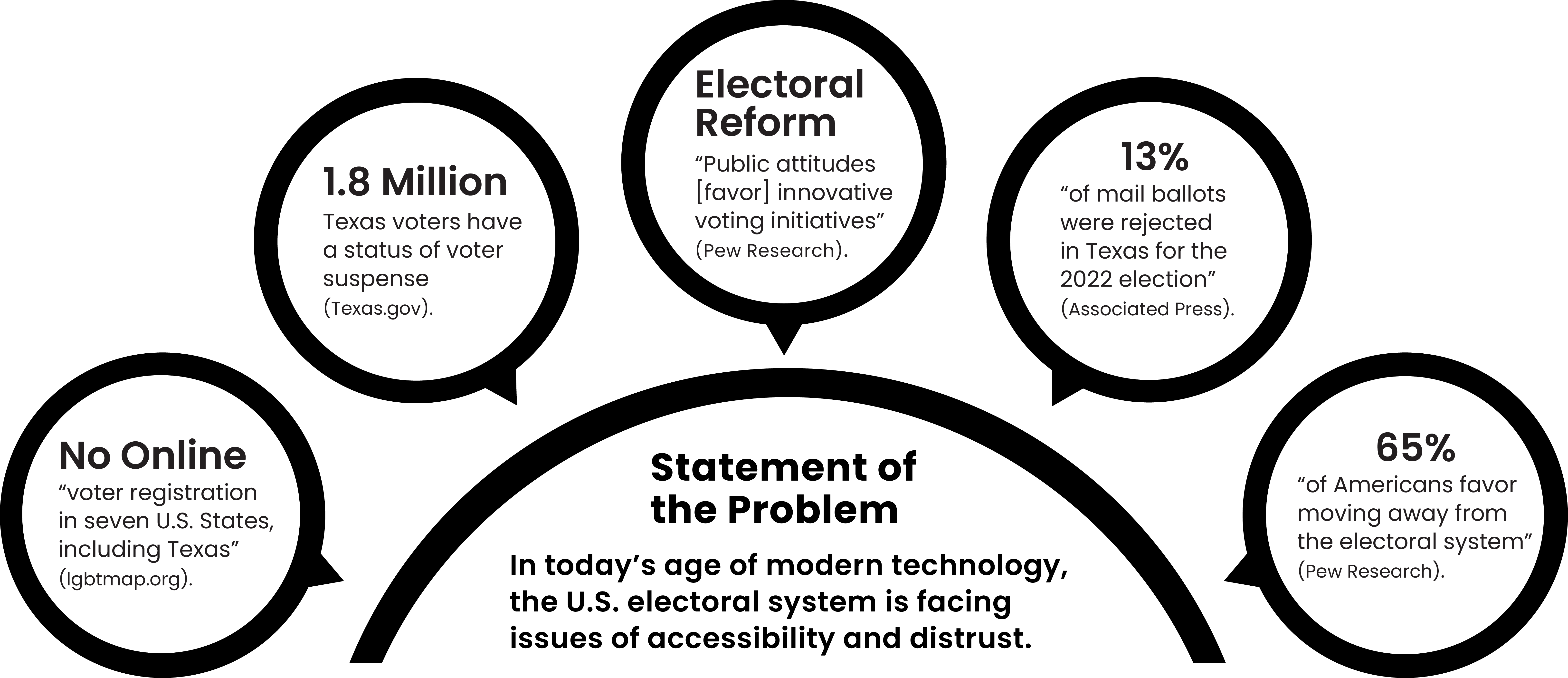
The trend of polling place closures and consolidations across the United States, exacerbated by the Supreme Court's 2016 decision in Shelby County v. Holder, has disproportionately affected marginalized communities. Reduced access to polling places can lead to voting difficulties, disenfranchisement, and a decline in voting rights.
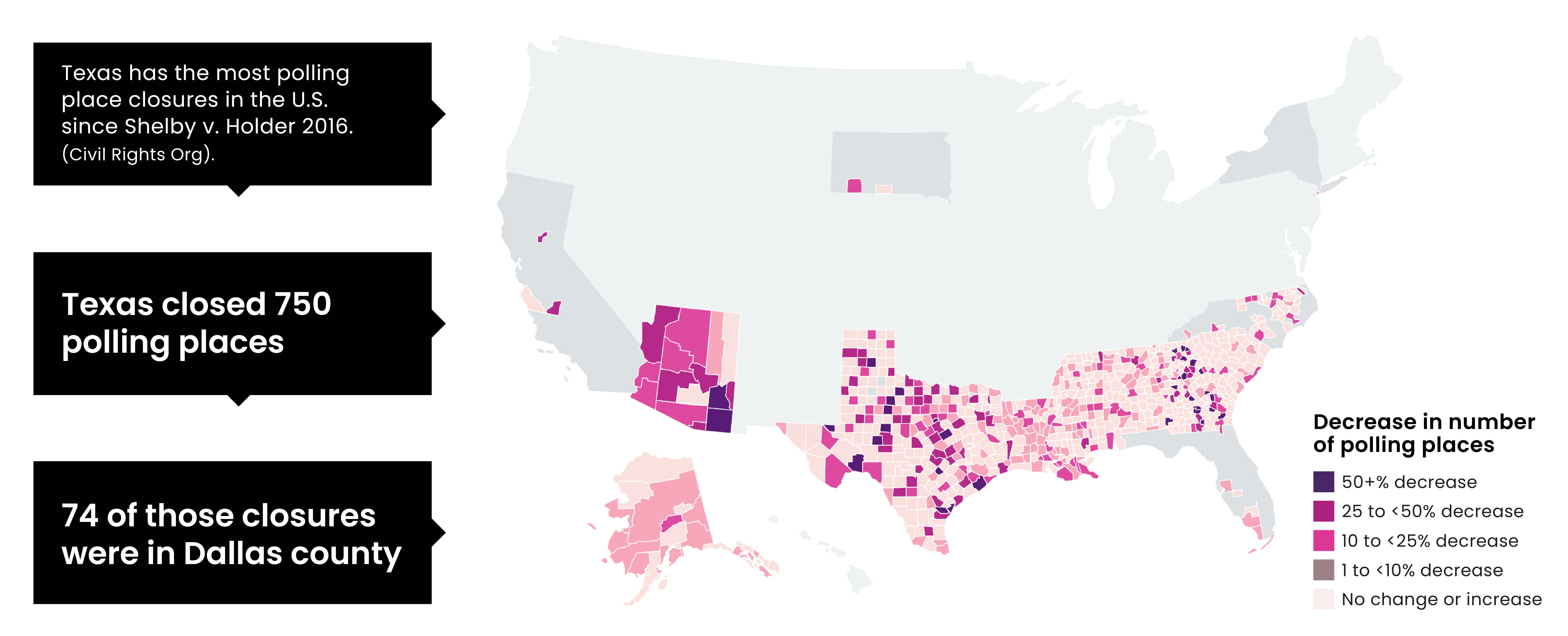
The absence of online voter registration in these states poses a barrier to effortless and efficient voter enrollment. This limitation can lead to decreased voter participation and increased administrative burdens. The push for online registration reflects a broader effort to modernize and streamline the voting process across the country.

According to the U.S. Department of Justice, “‘The District Court’s decision affirms what the Justice Department has argued for nearly two years: these provisions of Texas Senate Bill 1 unlawfully restrict the ability of eligible Texas voters to vote by mail and to have that vote counted,’ said Attorney General Merrick B. Garland. The Justice Department will continue to defend against unlawful efforts that undermine the right to vote and restrict participation in our democracy.”
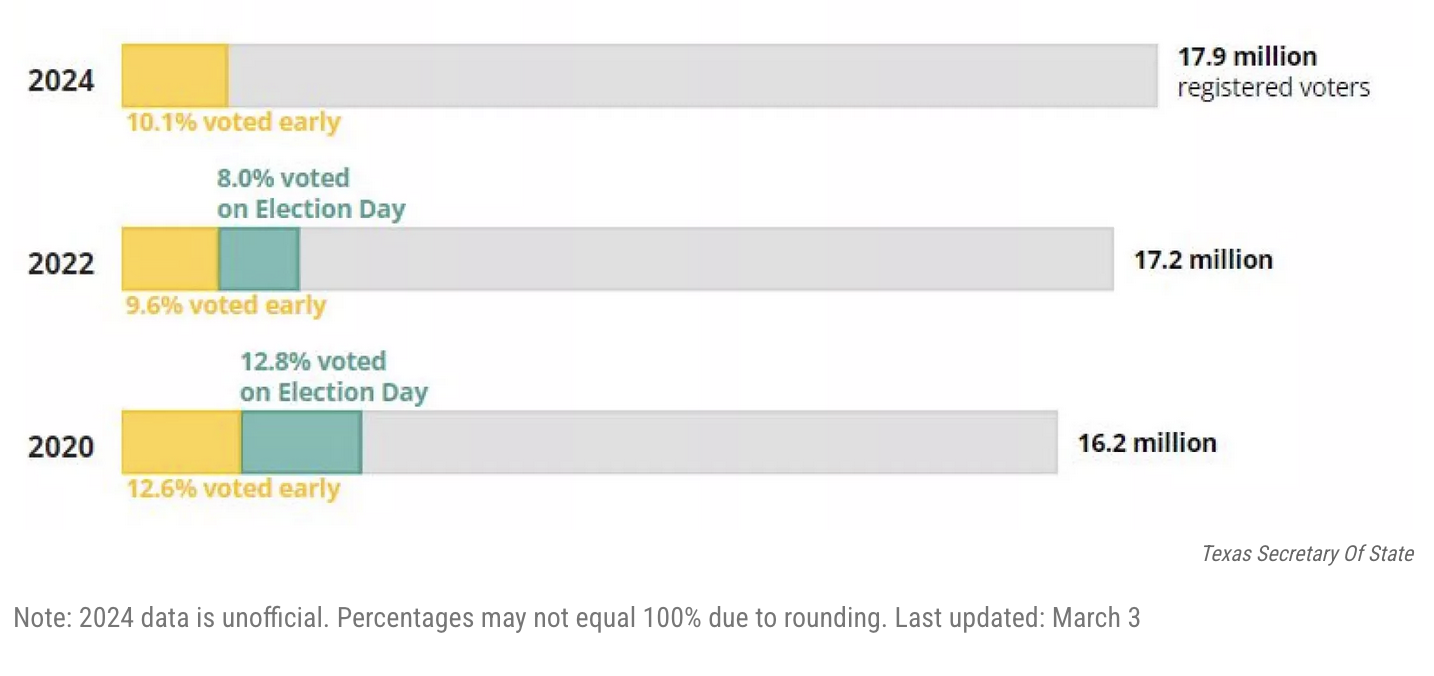
Flavia Artese’s study detailed in the U.S.National Library of Medicine’s article,“In the digital world, all roads lead to Rome. But is Rome prepared?” ‘Generations:The history of America’s future, 1584 to 2069,’ suggests that different generations shape society. The idea here is that every 20 years, a new group of people is born around the same time and shows unique behaviors and attitudes.The Strauss-Howe generation theory points out that every 80 years, or four generations, a crisis shakes up society and leads to new ways of doing things.For example, look at the generations of this century.
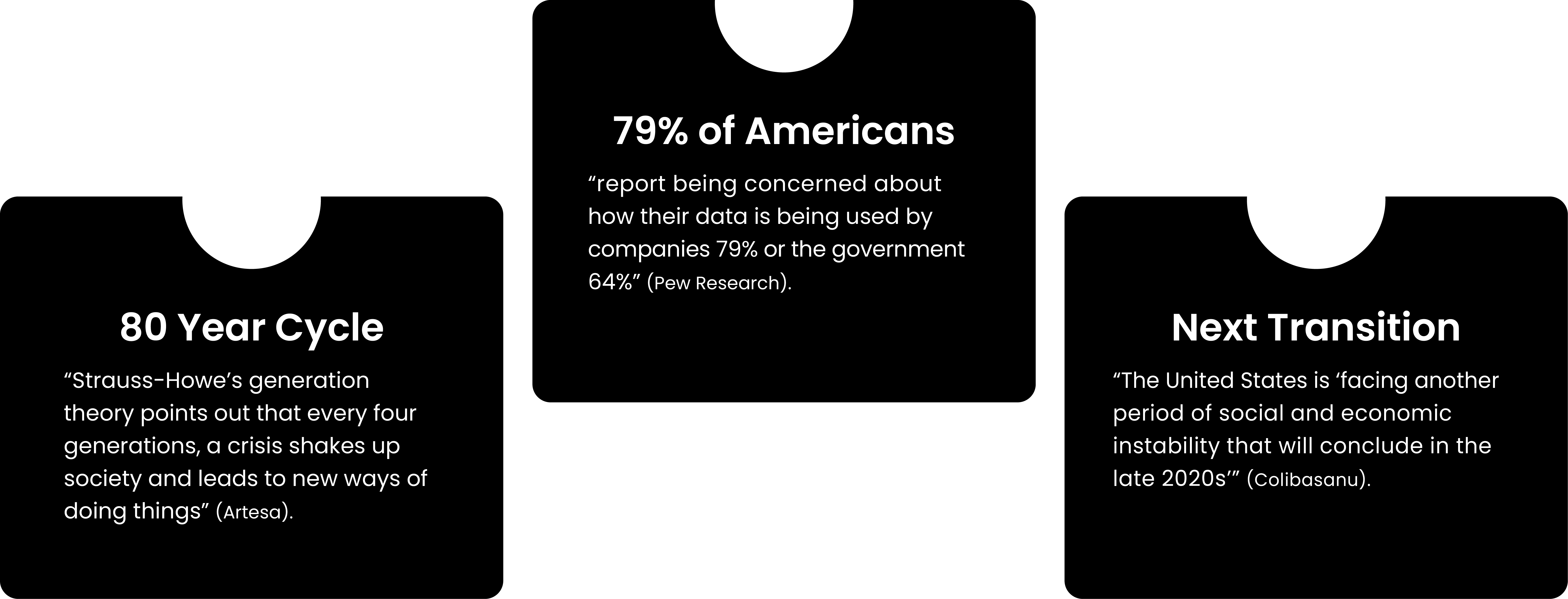
“The socio-economic cycle has shifted in the80s, considering technological innovation and businesses. George Friedman points out that ‘the strains of the next transition are becoming obvious now and will take place around 2025’, as the United States is ‘facing another period of social and economic instability that will conclude in the late 2020s”(Colibasanu).
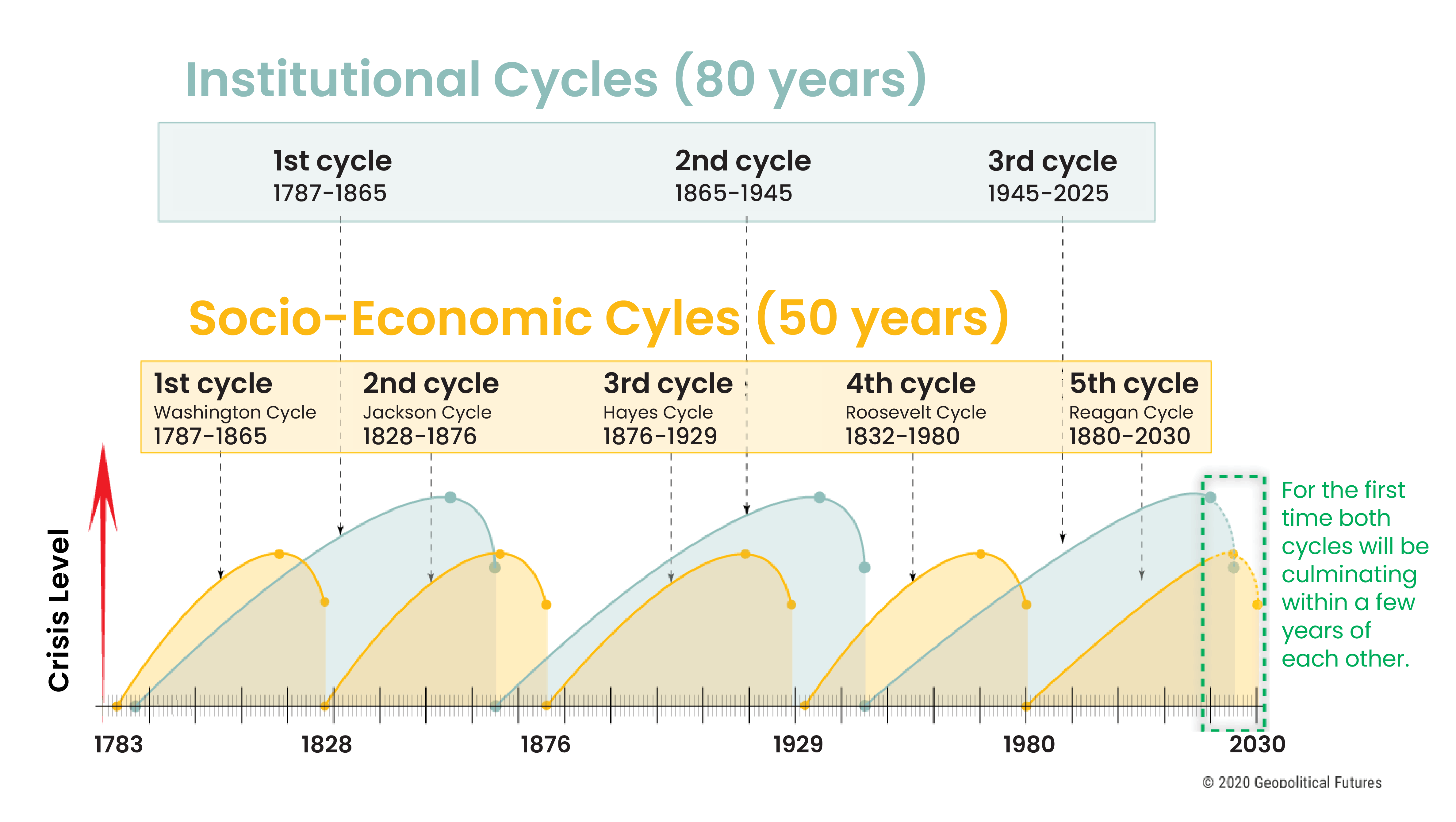
According to Shoshana Zuboff, “surveillance capitalism” refers to an economic system in which personal data is commodified and used for targeted advertising.It is an ongoing debate whether surveillance capitalism is inherently antithetical to democratic principles. “A majority of Americans report being concerned about the way their data usage by companies (79%) or the government (64%). Most also feel they have little or no control over how these entities use their personal information, according to a new survey of U.S. adults by Pew ResearchCenter” (Atske).

VitoLaterza, in his peer-reviewed article, focuses on “the role of models and simulations in the big data campaigning tools Cambridge Analytica allegedly used and their epistemological and ontological potential to produce and reproduce voters’ digital doubles that would first colonize and eventually replace the analog selves they were related too. By integrating and revising Zuboff’s surveillance capitalism framework with Debora’s classic theory of the Spectacle, the article argues that the dystopian simulations played as real-life experiments by surveillance capitalist firms such as Cambridge Analytica have the goal of replacing analog humanity with digital humanity—the two kinds are ontologically different albeit dialectically related.” Therefore, companies like Cambridge Analytica might use sophisticated tools to create digital versions of us. These digital versions could become more influential than our real-life selves. Awareness and caution are essential for the implications this has for our identity and autonomy in the digital age. Ensuring against manipulation by real-person profiles is crucial when introducing new electronic voting systems. We must prioritize the rights and decisions of human voters over any digital influence. Implementing robust security and transparency measures will ensure a fair voting process for everyone.
Surveillance capitalism refers to the commodification(commodify) of personal data for economic gain, often at the expense of individual privacy and autonomy. The centralization of data control among a few large corporations, as evidenced by the dominance of the “Big Three”(BlackRock, Vanguard, and State Street), further increases these risks. These firms, holding substantial shares in the top U.S. corporations, have immense influence over market dynamics and “personal data flows.”

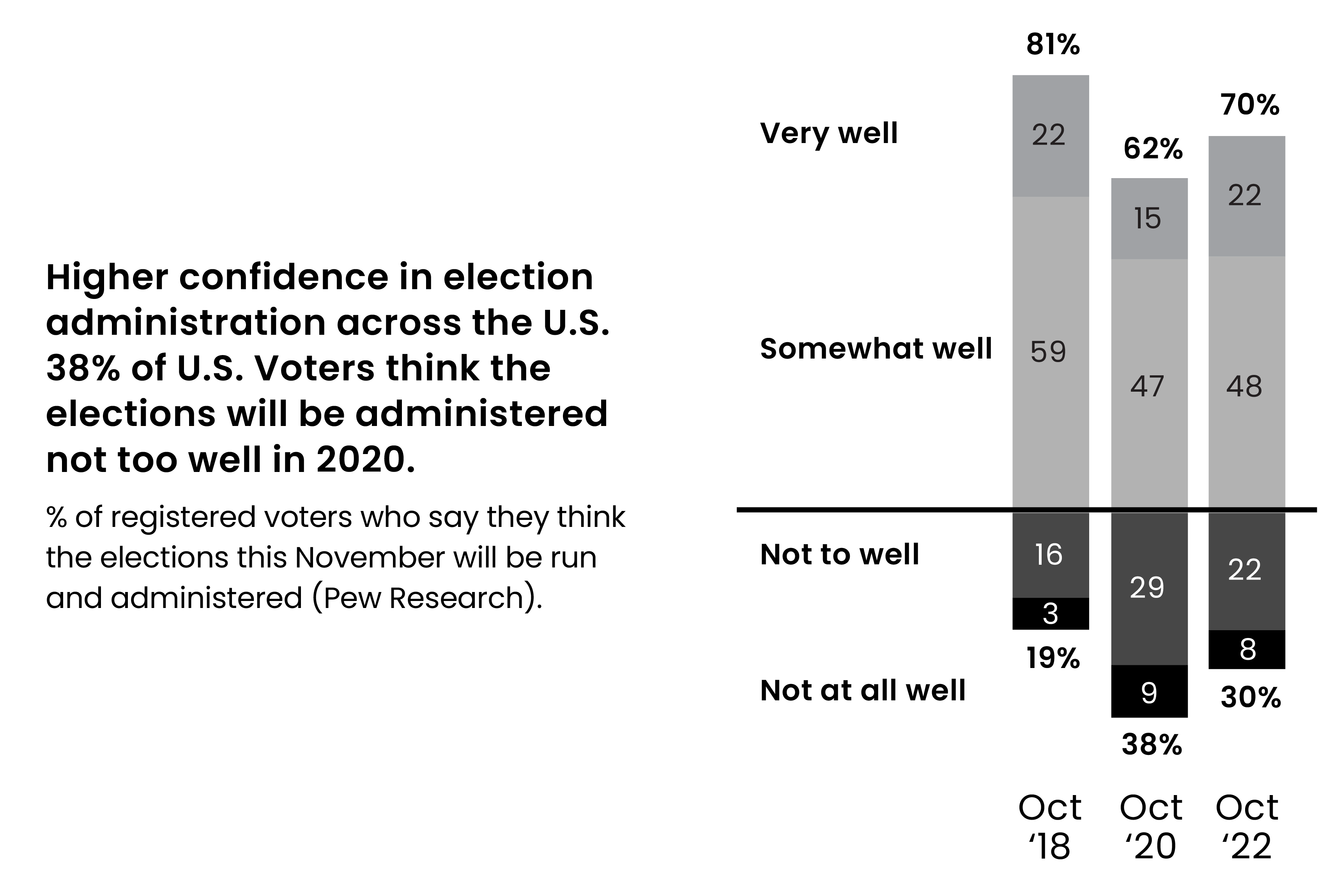
Last updated June 14, 2024
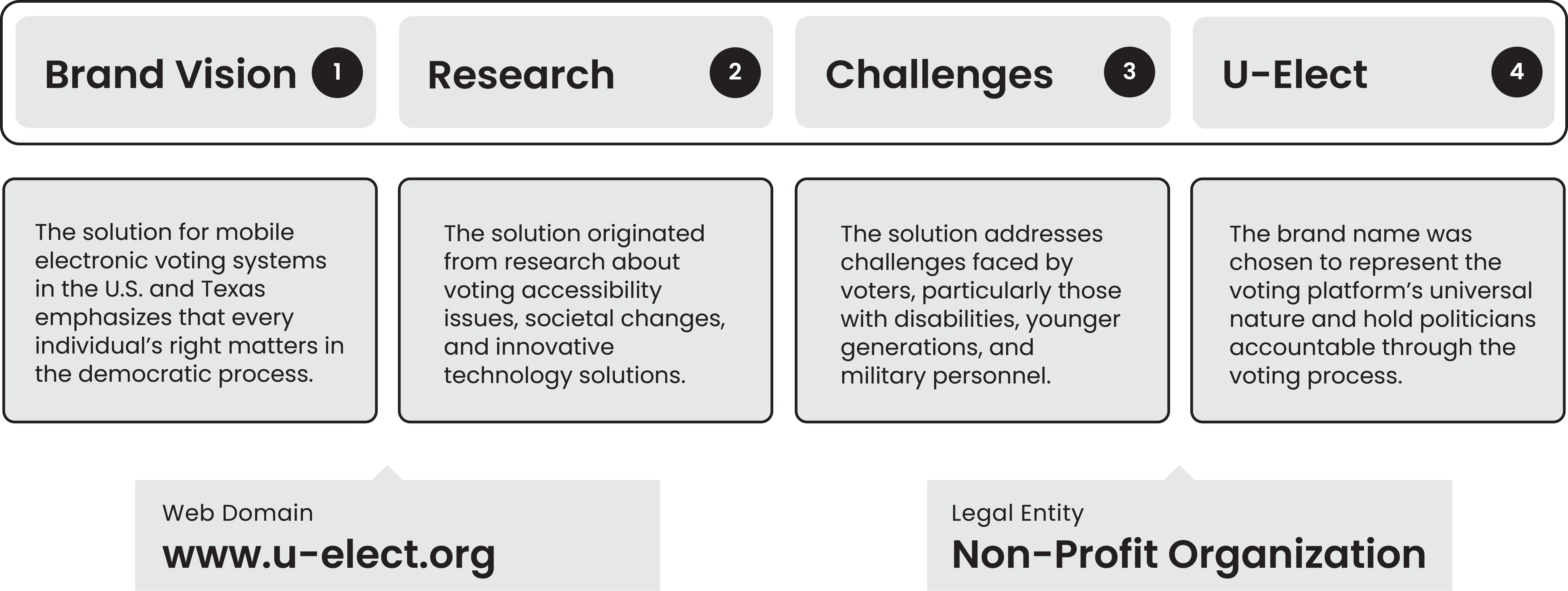
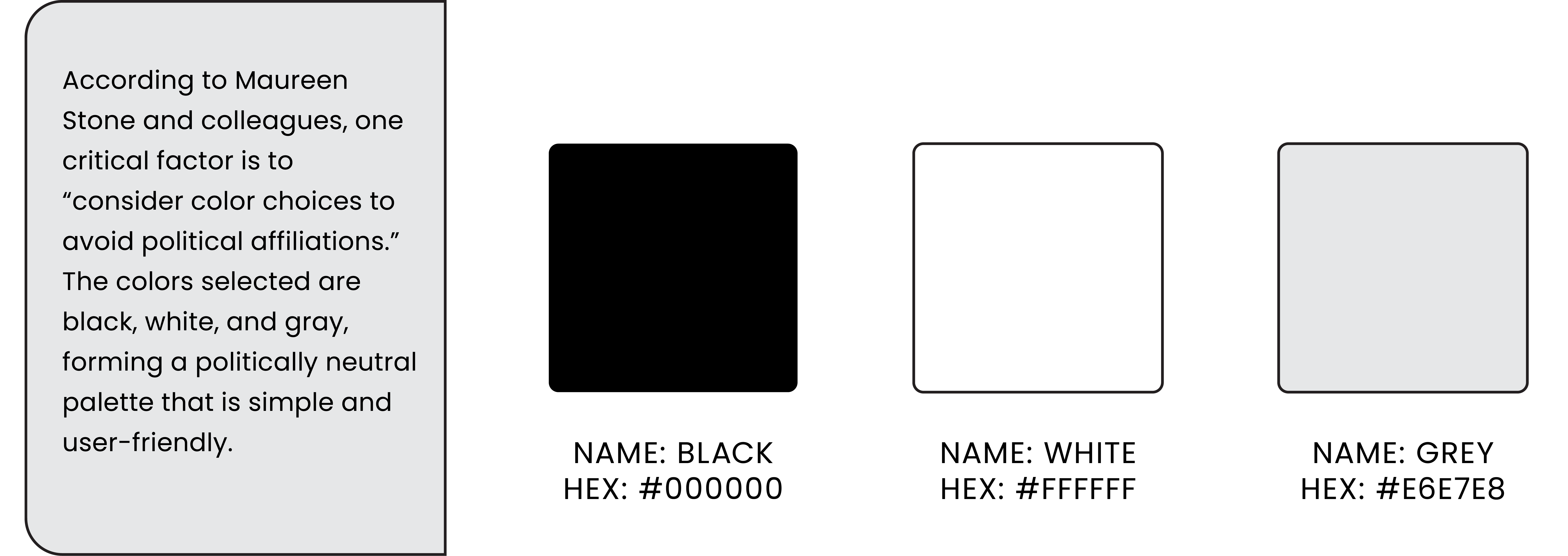
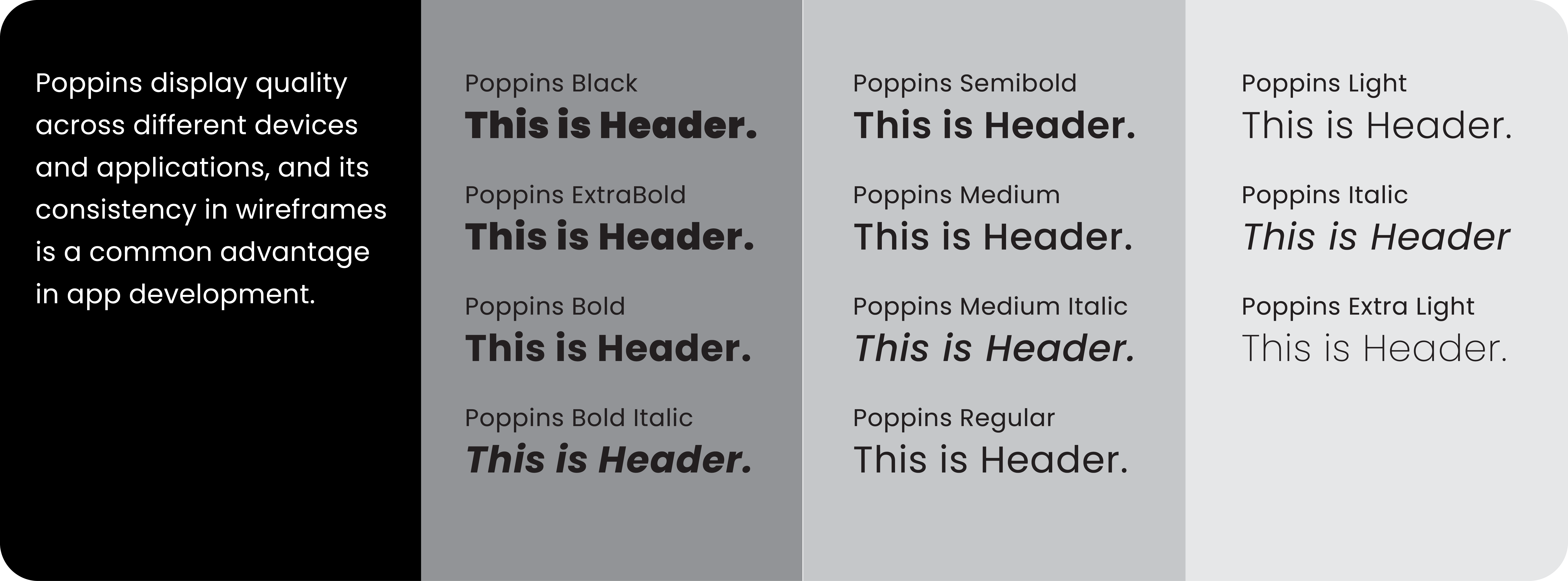

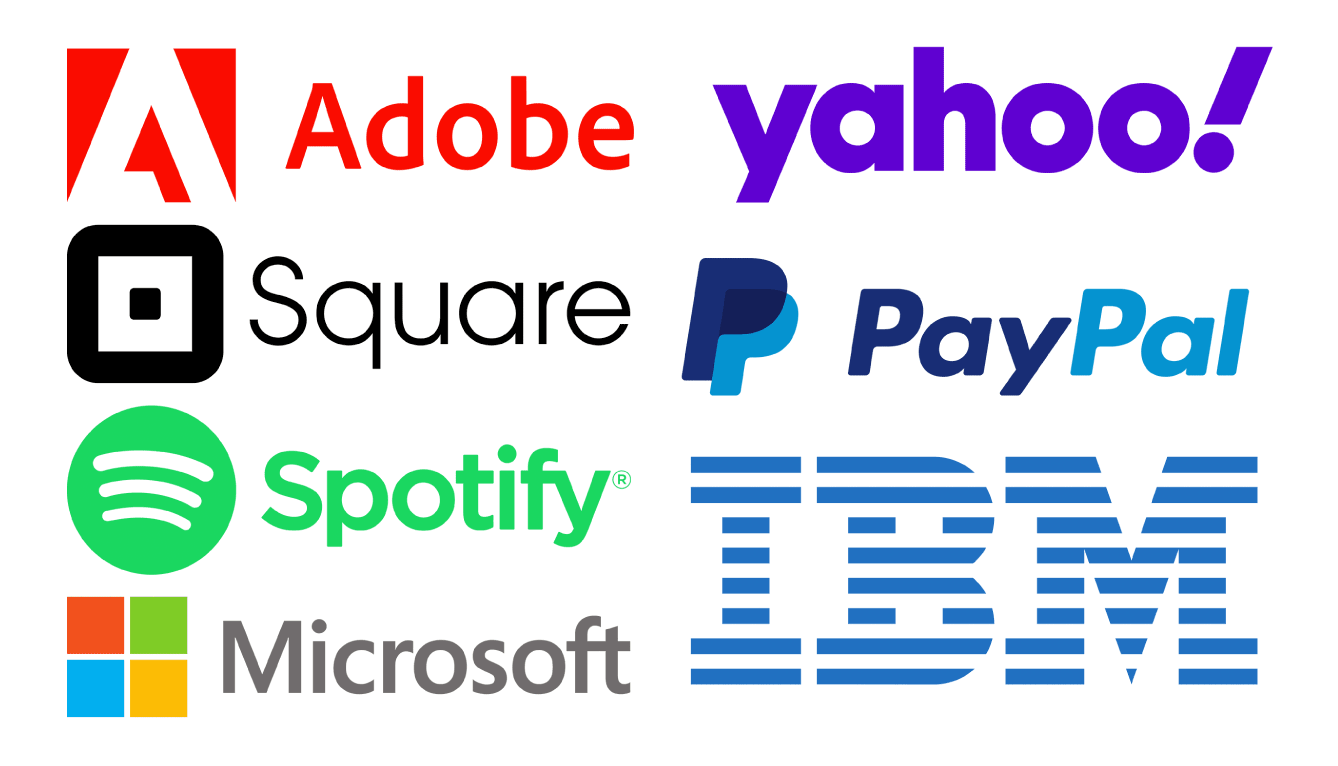
The U-Elect logo incorporates modern design elements, such as the bold “U” shape representing unity and the eagle representing freedom and integrity, reflecting the platform’s commitment to accessible and secure elections.

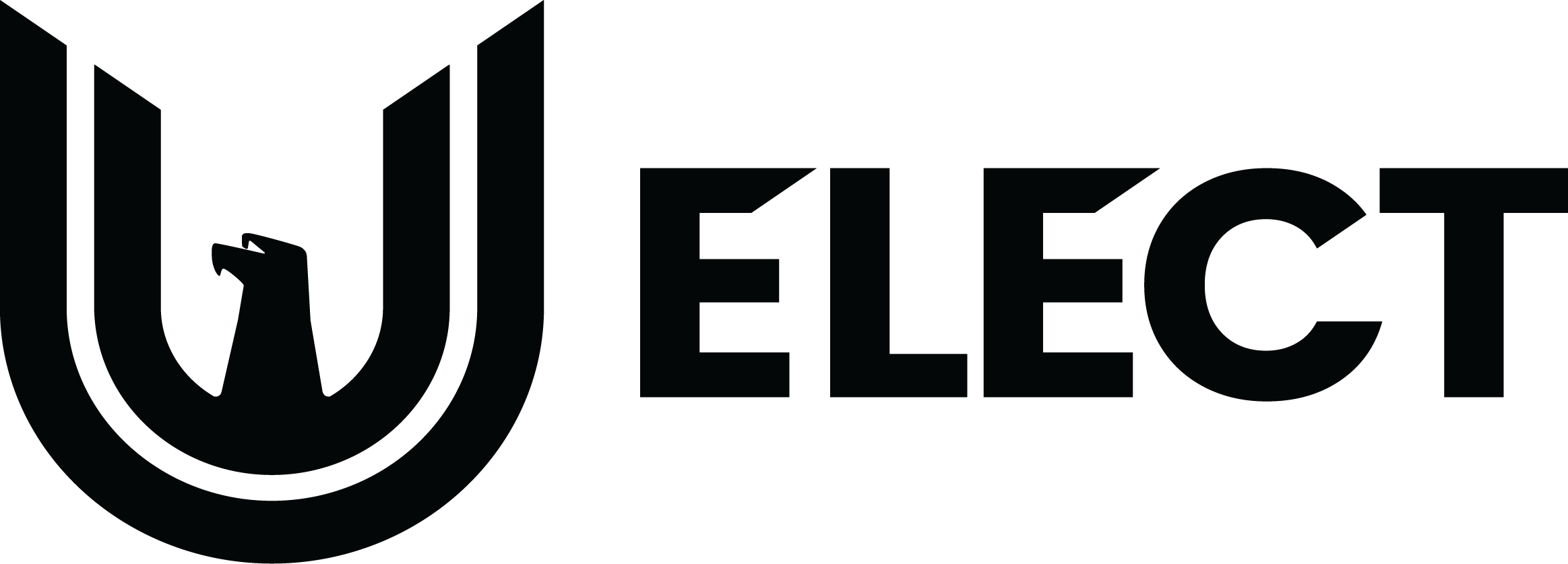
U-Elect is committed to upholding the highest standards of transparency and accountability. Its nonprofit structure allows for the transparency of funding and transparency on the technological providers (third parties) that the nonprofit uses in the E-voting system. Preserving the integrity of the electoral process and instilling confidence in the democratic system.

Last updated June 14 2024
U-Elect is a pioneering design-centric solution revolutionizing the voting process in the U.S. and Texas. By leveraging cutting-edge blockchain technology, U-Elect offers a seamless and secure method for citizens to participate in elections through intuitive web and mobile applications.

U-Elect's user-friendly interface, accessible on both web and mobile devices, provides voters to cast their ballots conveniently from any location. Built upon a foundation of security and trust, U-Elect prioritizes the confidentiality and immutability of voter data.

Integrating blockchain technology ensures each vote's integrity and transparency, safeguarding the democratic process by leveraging blockchain technology, the platform ensures that every vote is verifiable and tamper-proof. Rest assured, your vote is safe with us.
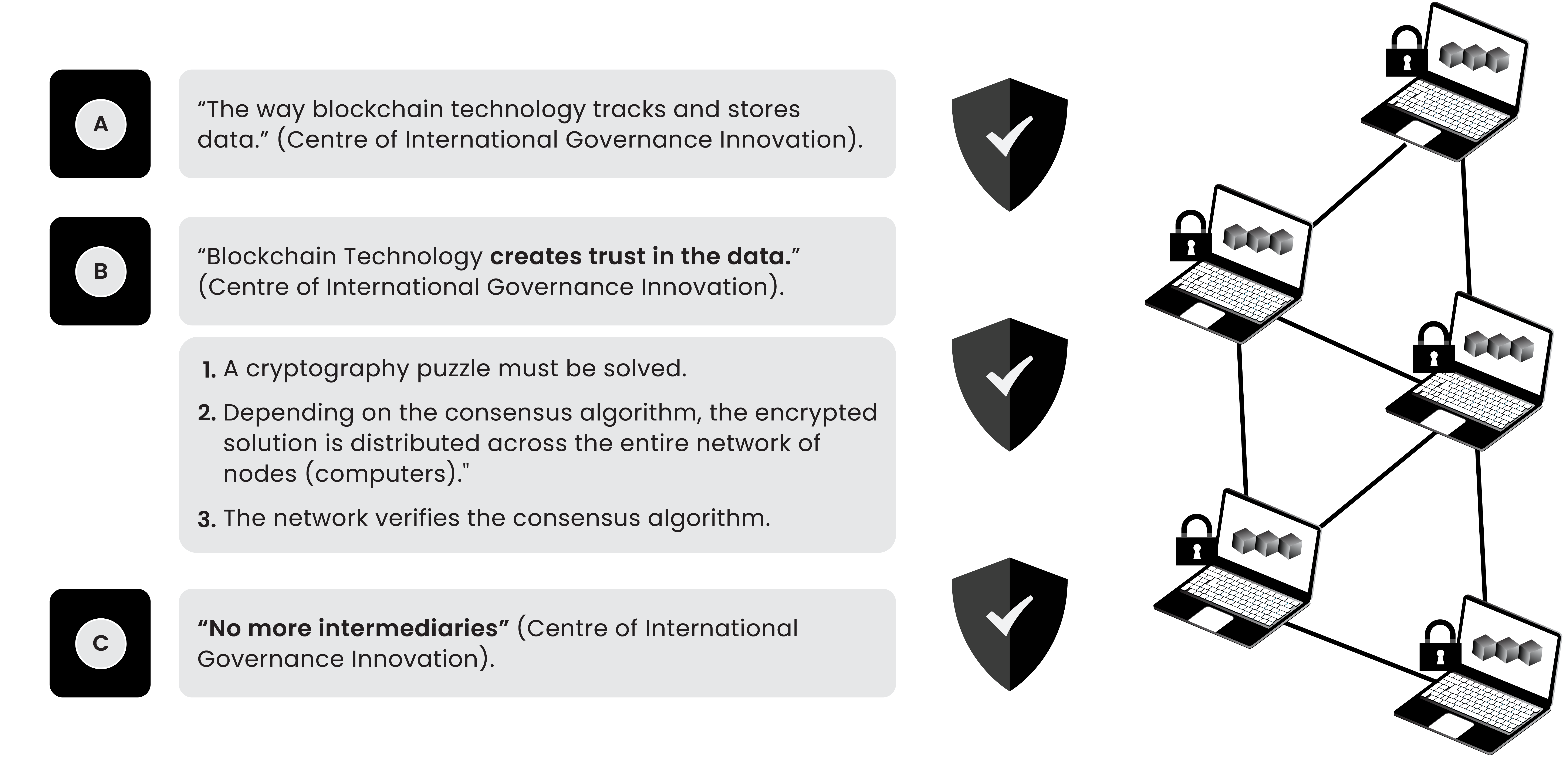
A typical interaction on the U-Elect platform begins with the voter accessing the mobile application and securely logging in. Then the voter will have an electronic ballot, which includes options for candidates to submit their E-ballot.
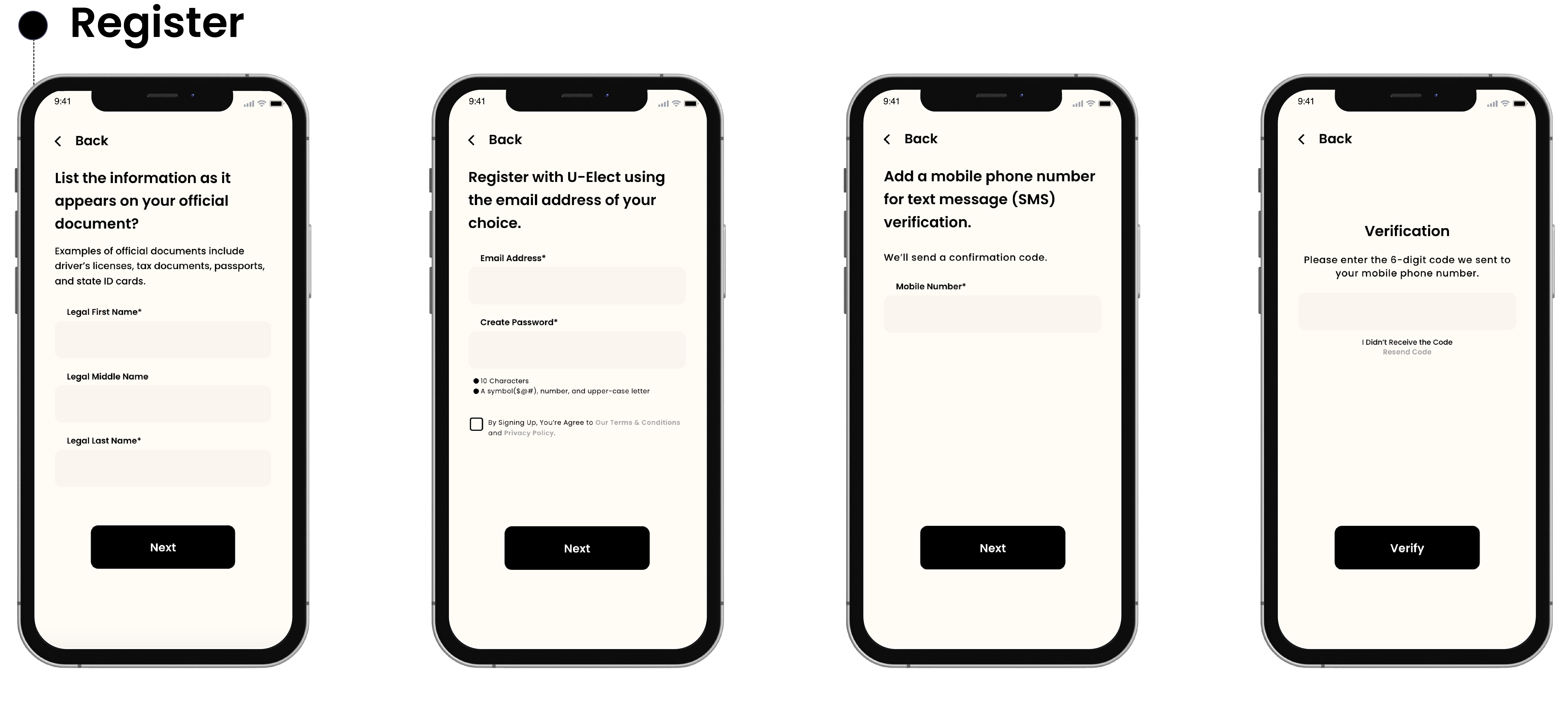

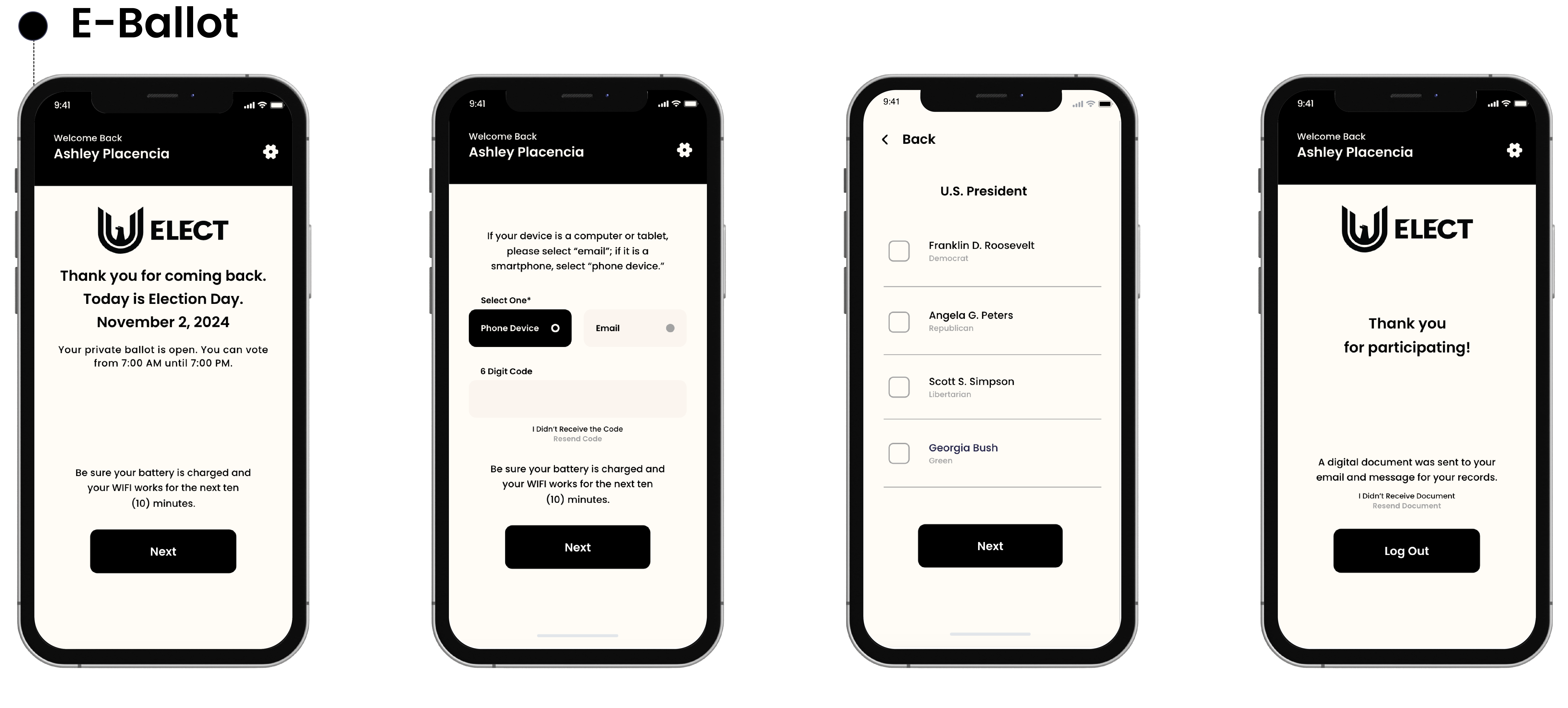
U-Elect values peer-reviewed articles, user feedback, and actively seeks input to enhance the platform's functionality and usability. Through ongoing iteration and refinement, U-Elect remains at the forefront of innovation in voting technology, striving to provide an unparalleled voting experience for all Texans.
We are laying the foundation for its evolution into a U.S. Government institution or multiple government entities.

U-Elect is committed to making voting accessible to all citizens, including those with disabilities or limited mobility. The platform's intuitive design and customizable features accommodate diverse voter needs, ensuring every voting right participates in the democratic process.
The primary objective of U-Elect is to provide accessibility to U.S. voters to exercise their democratic rights with confidence and ease. By streamlining the voting process and eliminating barriers to participation, U-Elect aims to increase voter participation and promote a more accessible and representative electoral system.
At its core, U-Elect is about certifying constituents to shape the future of their communities through active civic engagement. By offering a secure, accessible, and user-friendly voting platform, U-Elect empowers every citizen to make their voice heard and participate meaningfully in the democratic process.
© 2024 U-Elect Org. All Rights Reserved.